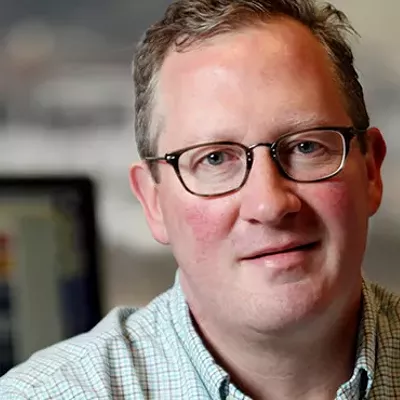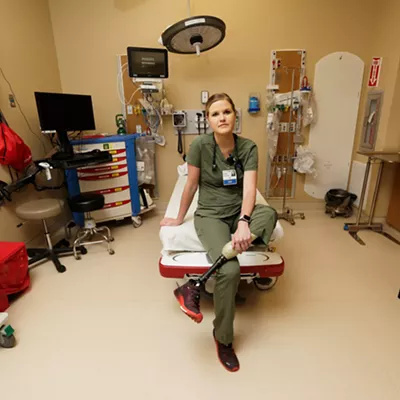"Empathy." If I boil down, into one word, the past year's worth of journalism we've devoted to our "State of Mind" series, that's it. Not "sympathy," feeling sorry for others, although that's there, too. Empathy is feeling others' pain, experiencing their challenges. Empathy can create change.
Over the past year, in more than 40 installments, we've introduced you to lots of people who deserve your empathy. Of course, there are those hit with mental illness and thrust into a world of incarceration, treatment and confusion. February's "Locked Away" was about Amanda Cook, who was booked into Spokane County Jail in early October of 2013. Confined in isolation without treatment, she was still awaiting a mental health evaluation two months later when she took her own life. In one of her final letters to her sister, she wrote: "I'm really hoping to still have a chance to get my mind right and be able to be with you where I belong." We failed her.
Then there are the public servants — law enforcement, jailers, mental health professionals. They are overrun by a broken system. The Spokane County Jail, for example, is the second largest mental health treatment facility in the state. In North Idaho, as we detailed in May's "Crisis Control," mental health cases are pulling cops off the streets. "It's a huge problem here," Kootenai County Sheriff Ben Wolfinger told us.
Meanwhile, legislators pass get-tough laws when news reports push their buttons, as we covered in "Patients and Prisoners," which connected the dots between the 2009 escape of Eastern State Hospital patient Phillip Paul and new laws that restricted mental health patients' few freedoms. And our courts keep issuing rulings that create new mandates there are no professionals to fulfill.
Finally, there are family members who are challenged to navigate the legal and mental health systems for their loved ones. In "A Mother's Struggle," we introduced you to Rhoda Behrens, who was caught in a legal fight to reconnect with her mentally ill adult son, Richie. "He appears so far out of reach at this moment," she told us in June. "I'm so scared that I won't get him before he dies... or hurts somebody."
You can learn more in this week's capstone of our series — 20 pages of resources and stories about our neighbors who deal with mental health challenges every day. I'm so proud of the powerful work our editor, Jacob Fries, and his team of reporters have done on "State of Mind." Now it's time for all of us to take it to the next level — from empathy to action. ♦
























